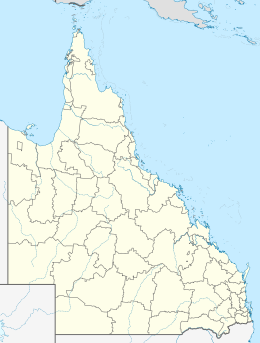Heron Island, Australia

Heron Island from helicopter, looking north-northeast.
|
|
| Geography | |
|---|---|
| Location | In the southern Great Barrier Reef |
| Area | 0.29 km2 (0.11 sq mi) |
| Length | 0.8 km (0.5 mi) |
| Width | 0.3 km (0.19 mi) |
| Highest elevation | 3.6 m (11.8 ft) |
| Administration | |
|
Australia
|
|
| State | Queensland |
Heron Island is a coral cay located near the Tropic of Capricorn in the southern Great Barrier Reef, 80 km north-east of Gladstone, Queensland, Australia, and 460 km north-north-west of the state capital Brisbane. The island is situated on the leeward (western) side of Heron Reef, a fringing platform reef of significant biodiversity, supporting around 900 of the 1,500 fish species and 72% of the coral species found on the Great Barrier Reef.
The island is about 800 metres (2,600 feet) long and 300 metres (980 feet) at its widest, giving an area of approximately 16 hectares (40 acres). The highest point, near the western tip, is 3.6 metres (12 feet) ASL. A dune ridge along the southern shore rises some 3 metres (9.8 feet) ASL, lower dunes on the north-eastern side are only about one metre (3 ft) above the sea.
Heron Island and an extrapolated version of the research station are the scene of much of the first part of Arthur C. Clarke's The Deep Range.
Heron Island was discovered on 12 January 1843 by the corvette HMS Fly. The ship was surveying the eastern edge of the Great Barrier Reef together with the cutter Bramble. The expedition was commanded by Captain Francis Blackwood and the reason for the expedition was mainly to map out detailed plans for safe passages within the reef. The island was named by Lieutenant Charles Bampfield Yule RN of the Bramble.
The island did not become inhabited until the early 20th century when a turtle cannery was established. The aim was to profit from the seasonal influx of green turtles, but the venture soon found it difficult to keep the business afloat. Other attempts at establishing fisheries were abandoned.
...
Wikipedia

